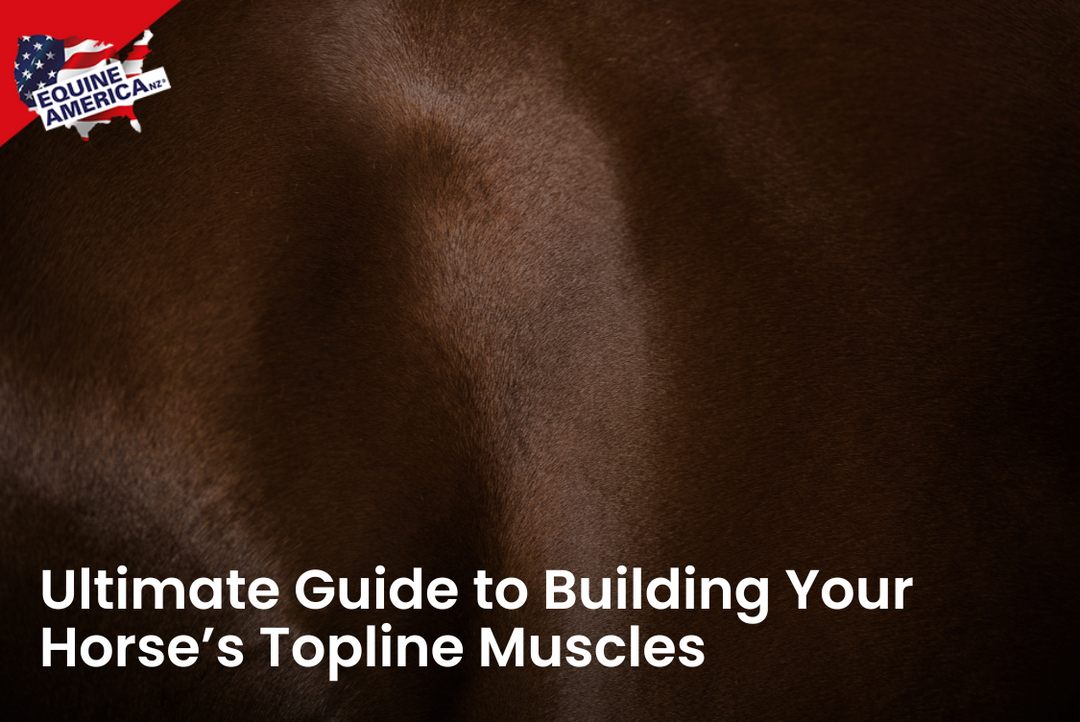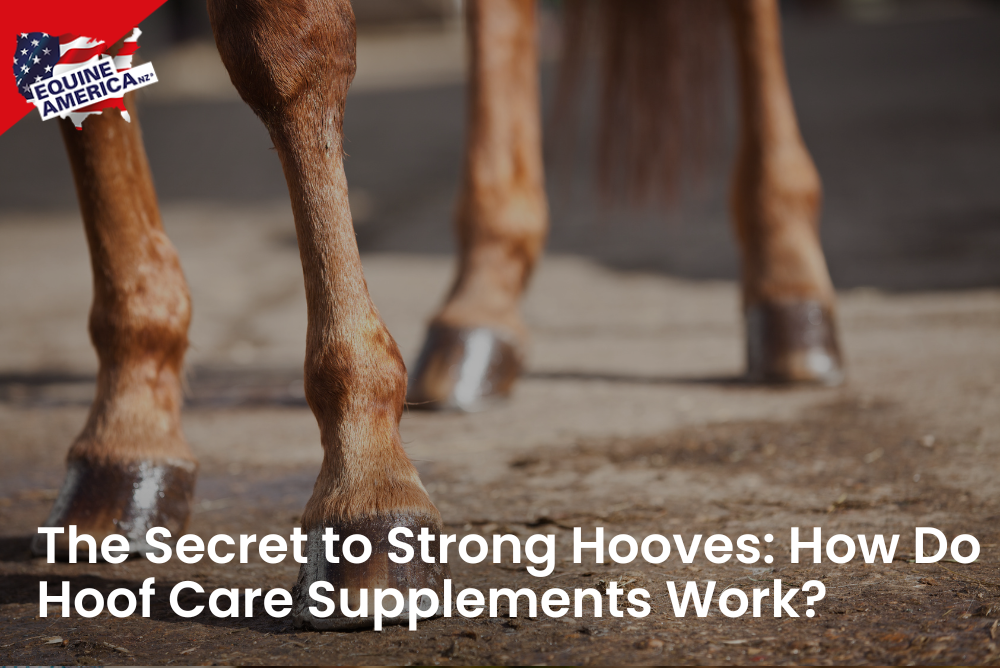Do Horses Need Digestive Supplements?
When it comes to your beloved equine companion, few aspects are as crucial as their digestive health. In this article, we'll embark on a journey through the world of equine digestive health and explore the pivotal role that supplements play in maintaining it. As a horse owner or enthusiast, you understand the profound importance of ensuring your horse's digestive system functions at its best. This article will take you on a comprehensive exploration of equine digestion, offering the knowledge you need to keep your horse in top condition.
The Need for Digestive Supplements
Horses possess a unique digestive system, often facing challenges that can impact their overall well-being. Digestive supplements can provide invaluable support in maintaining a healthy gut. In this article, we will delve into the intricate relationship between diet and digestive health, the significance of digestive health in horses, and the potential consequences of poor digestion. Equine digestive health is not merely about nutrition; it is a cornerstone of your horse's quality of life. Let's embark on a journey through the world of equine digestion and discover how to keep it in peak condition.
The Importance of Equine Digestive Health
The significance of digestive health in horses is multifaceted and paramount to their overall well-being. Here are key points that highlight its importance:
- Nutrient Utilisation: A healthy digestive system ensures efficient utilisation of nutrients from the horse's diet, enabling proper growth, maintenance, and energy.
- Gut Health: Digestive health is closely tied to gut health. A balanced digestive system minimises the risk of gastrointestinal issues, such as colic and ulcers.
- Weight Maintenance: A well-functioning digestive system helps in maintaining a healthy weight for the horse. Poor digestion can lead to weight loss and other related health problems.
- Energy Levels: Proper digestion is essential for providing the energy required for various equine activities, from riding to grazing.
- Immune Function: A significant portion of the horse's immune system resides in the gut. Good digestive health contributes to a robust immune response.
- Behavior and Temperament: Discomfort caused by digestive issues can lead to changes in behavior and temperament, affecting the horse's disposition and performance.
- Prevention of Health Issues: Maintaining good digestive health can help prevent or reduce the risk of digestive disorders, such as colic, which can be life-threatening.
- Enhanced Quality of Life: Overall, a well-functioning digestive system is essential for ensuring that your horse leads a happy, healthy, and fulfilling life.
Understanding the Horse's Digestive System
Anatomy of the Digestive System
To comprehend the intricacies of equine digestive health, it's essential to first familiarise ourselves with the anatomy of the horse's digestive system. Horses possess a unique and complex system designed for their herbivorous nature. The equine digestive system comprises various components, from the mouth to the cecum and colon. Understanding this anatomy is vital for making informed decisions regarding your horse's care.
Key Digestive Challenges in Horses
Horses face specific digestive challenges that require careful consideration and management. Digestive issues are prevalent among horses, and some of the key challenges include colic, ulcers, and issues related to the cecum and hindgut. In this subsection, we'll delve into these challenges, providing insights into their causes, symptoms, prevention, and management. Equipped with this knowledge, you'll be better prepared to support your horse's digestive health.
The Role of Digestive Supplements
Digestive supplements play a vital role in promoting and maintaining equine digestive health. There are various types of supplements available, each designed to address specific aspects of digestion. Here, we'll list the different types of digestive supplements and focus on the potential benefits of using probiotics and prebiotics for horses.
Types of Digestive Supplements
Probiotics: Probiotic supplements contain beneficial microorganisms that promote a healthy gut flora balance. They can aid in digestion and prevent the proliferation of harmful bacteria.
- Prebiotics: Prebiotics are specialised fibers that serve as food for beneficial gut bacteria. They stimulate the growth and activity of these beneficial microbes.
- Digestive Enzymes: These supplements contain enzymes that aid in the breakdown of food, making nutrients more accessible for absorption.
- Antacids: Antacids can help reduce stomach acidity, potentially preventing conditions like gastric ulcers.
- Laxatives: Laxatives may be used to address issues like impaction colic or constipation.
Benefits of Probiotics and Prebiotics
Probiotics and prebiotics are particularly valuable for equine digestive health. Their benefits include:
- Improved Gut Flora: Probiotics and prebiotics support a balanced gut microbiome, promoting efficient digestion.
- Reduction of Digestive Disorders: These supplements can help prevent or alleviate common digestive disorders such as colic and diarrhea.
- Enhanced Nutrient Absorption: By optimising the gut environment, probiotics and prebiotics improve the absorption of essential nutrients.
-
Support for Immune Health: A healthy gut is closely linked to a robust immune system, and these supplements can bolster immunity.

Feeding Strategies for Optimal Digestion
To ensure optimal digestion in horses, it's essential to adopt feeding strategies that promote a healthy gut. Here are practical tips for feeding horses for better digestion and insights into common mistakes to avoid:
Practical Tips for Better Digestion:
Frequent, Small Meals: Horses are natural grazers, and feeding them smaller, more frequent meals aligns with their digestive system. It helps prevent overloading the stomach and supports more efficient digestion.
- High-Quality Forage: Good-quality forage should be the foundation of your horse's diet. It provides essential fiber that aids in digestion and maintains a healthy gut.
- Balanced Diet: Ensure that your horse's diet is well-balanced, meeting their nutritional requirements. This includes the right proportions of protein, carbohydrates, fats, vitamins, and minerals.
- Consistent Feeding Schedule: Horses thrive on routine. Establish a consistent feeding schedule to minimise stress and support stable digestion.
- Hydration: Adequate water intake is crucial for digestion. Ensure your horse has constant access to clean, fresh water.
- Limit High-Sugar and High-Starch Feeds: High-sugar and high-starch feeds can disrupt digestion and lead to issues like colic and laminitis. Minimise their use.
- Slow Feeding: Slow-feed hay nets or feeders can extend the time it takes for your horse to consume forage, mimicking their natural grazing behavior.
Common Mistakes in Horse Nutrition:
- Overfeeding: Feeding more than your horse requires can lead to obesity and related health issues.
- Inadequate Fiber: A diet lacking in fiber can result in poor digestion and a higher risk of colic.
- Neglecting Dental Care: Dental issues can hinder chewing and affect digestion. Regular dental check-ups are crucial.
- Abrupt Diet Changes: Sudden changes in diet can disrupt the gut microbiome and cause digestive upset. Gradually introduce new feeds.
- Ignoring Allergies or Sensitivities: Some horses may have food allergies or sensitivities that can affect digestion. Be vigilant and adjust the diet as needed.
Expert Recommendations for Horse Owners
Maintaining your horse's digestive health is a top priority. Here are some best practices and expert recommendations to ensure your horse's digestive system operates at its best:
- Regular Dental Care: Schedule annual dental check-ups to address any issues that may hinder proper chewing and digestion.
- Consult a Nutritionist: Consider consulting an equine nutritionist to create a well-balanced diet tailored to your horse's individual needs.
- Monitor Body Condition: Regularly assess your horse's body condition and adjust their diet as necessary to maintain a healthy weight.
- Minimise Stress: Reducing stress through a consistent routine and proper management can contribute to better digestion.
- Provide Mental Stimulation: Mental stimulation, such as turnout and social interaction, can reduce stress and promote overall well-being.
Choosing the Right Digestive Supplements
Selecting the most suitable digestive supplements for your horse is a crucial decision. Here are tips to help you make the right choice, considering factors such as age, breed, and specific health conditions:
- Consult Your Veterinarian: Before introducing any supplements, consult your veterinarian for a thorough evaluation and recommendations.
- Consider Specific Needs: Different horses have varying digestive needs. Consider factors like age, breed, and any existing health conditions when choosing supplements.
- Review Ingredient Labels: Read supplement labels carefully to ensure they meet your horse's requirements and contain quality ingredients.
- Start Gradually: Introduce new supplements gradually to allow your horse's digestive system to adjust.
- Monitor and Adjust: Keep a close eye on your horse's response to the supplements and be ready to make adjustments if necessary. Every horse is unique, and their needs may change over time.
Final thoughts
Equine digestive health stands as a cornerstone of your horse's overall well-being. The vitality of your equine companion depends on the proper functioning of their digestive system. Remember, your commitment to equine digestive health directly impacts your horse's happiness, health, and performance. Prioritising their digestive well-being ensures a life of vitality and vigor.
If you're looking for high-quality digestive supplements or joint care products, consider exploring the range of offerings available at Equine America NZ. Your horse deserves the best care, and a healthy digestive system is a significant step in that direction.




